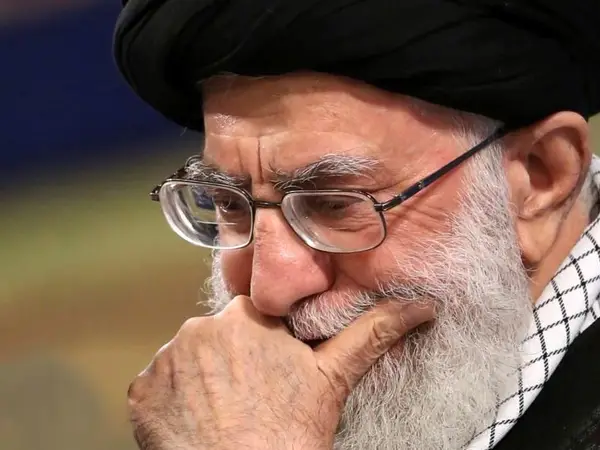A secret report by IRGC's media arm quotes Iran’s Supreme Leader as saying protests will not end soon and criticizing failures in “media war” against protesters.
“We are in a war and one of the tools to use in this war is the media. Why are we slow in this? Emphasize to these gentlemen (security officials) to utilize the media tool appropriately. These things, the riots, are not to finish anytime soon,” Supreme Leader Ali Khamenei told security and intelligence officials according to the report.
The 123-page document a copy of which has been provided to Iran International is among the documents obtained by the hacktivist group Black Reward. The document which includes both hearsay and excerpts from domestic and foreign-based Persian media was made in one copy only for the eyes of the IRGC chief commander Hossein Salami.
The report says Khamenei also ordered security and intelligence bodies to issue a statement about the ongoing protests that have engulfed the country since mid-September following the death of the 22-year-old Mahsa (Jina) Amini in the custody of morality police.
Although it is no secret that the 83-year-old ruler makes all the important decisions in the country, but this document clearly shows the extent to which tries to micro-manage and interfere in political security-related issues.
Black Reward announced on Friday [Nov. 25] that it had attacked the database of Fars News Agency claiming that it has deleted nearly 250 terabytes of data from all the servers and computers of the website and obtained confidential bulletins sent by the news agency to the office of Supreme Leader Ali Khamenei.
The report also includes various officials’ quotations from Khamenei regarding the recent crisis in the Sunni majority southeastern Sistan-Baluchestan province. The report claims that Khamenei has been critical of authorities for their handling of the situation, especially for President Ebrahim Raisi and Secretary of the Supreme National Security Council (SNSC) Ali Shamkhani’s “lack of initiative” in the matter.
On September 31, security forces killed nearly a hundred Sunni protesters and bystanders after a Friday prayer led by the influential Sunni cleric Mowlavi Abdolhamid who is officially known as Sheikh Abdolhamid Esmail-Zehi.
Protests in the province have continued since the incident which has been dubbed as the “Bloody Friday”. Abdolhamid has directly criticized Khamenei, demanded an apology as well as punishment for those responsible for the bloodshed. He has also defiantly refused to tone down his Friday sermons after which the locals take to the streets every week in the provincial capital, Zahedan, and other cities.
Faced with such “lack of initiative”, the report says, Khamenei told the officials of his own office he would have to take the matters into his own hands if “they could not keep up with it”. He also ordered the SNSC not to arrest Abdolhamid as they suggested by some but “disgrace him” in the eyes of the public while criticizing the police for not apologizing to the public and the people of Zahedan for the incident.
This shows Khamenei plays a major role in decisions that lead to the violation of human rights and the secret operations of intelligence agencies against dissidents.
“The system’s general policy is to bear with Abdolhamid for the time being and avoid provoking him to call Sunnis to the streets again. But the decision is to gradually reduce his influence,” the report’s writer comments in reference to Khamenei’s views.
The report also quotes Gholam-Ali Haddad-Adel, one of Khamenei’s advisors, as saying at a meeting with other officials that Khamenei is critical of the coalition of conservatives and hardliners known as Principlists for “being absent” in the handling of the crisis.
“Where were your forces during this recent unrest? Your [presence] should have shown in the provinces if you were strong and united,” Khamenei said according to Haddad-Adel, a former speaker who is also his son’s father-in-law.
